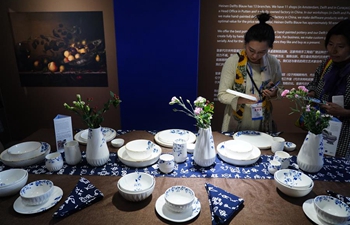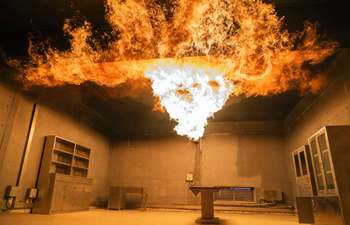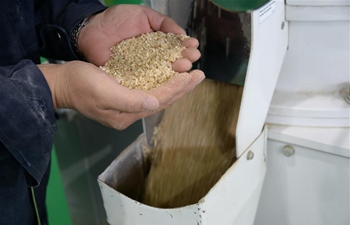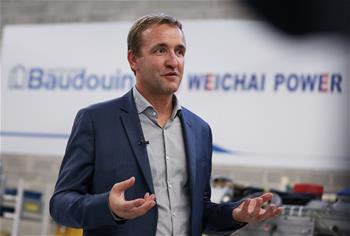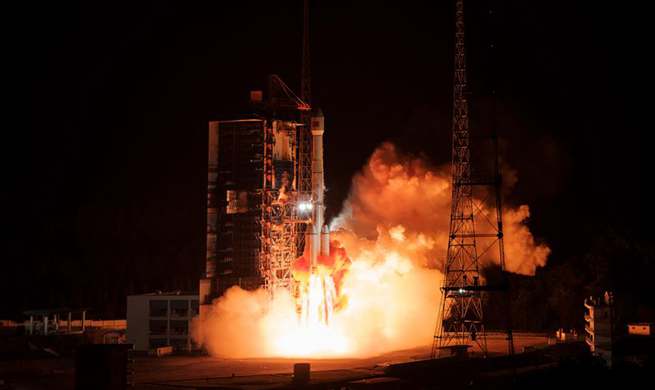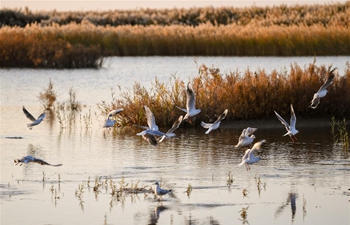MOMBASA, Kenya, Oct. 18 (Xinhua) -- Kenyan President Uhuru Kenyatta on Friday launched a vaccination campaign aimed at protecting women against cervical cancer.
Kenyatta said two doses of vaccine against Human Papillomavirus (HPV) will be administered to girls aged 10 years across the country.
"The screening services covered include cervical cancer screening, and advanced breast cancer screening, including mammography services, in all county referral hospitals," he said during the launch in the port city of Mombasa.
The ministry is rolling it out the immunization plan closely with the ministry of education and in collaboration with development partners that include the vaccine alliance Gavi, the UN Children's Fund (UNICEF) and the World Health Organization (WHO).
The vaccine that targets about 800,000, 10-year-old girls will be administered in two doses six months apart free of charge across the country.
According to the health ministry, there are about 27,000 reported cancer deaths every year in Kenya and the ministry says cervical cancer is preventable through vaccination.
Kenyatta announced that the vaccine will be available in all public and private health facilities across the country.
He said the launch of the vaccination program is a proud moment for Kenya as it marks a major milestone in the fight against cervical cancer.
Kenyatta also outlined legal reforms, provision of screening and cancer care health services as some of the interventions his administration has put in place to defeat the cancer scourge.
He said the government has increased investment to bolster cancer research, diagnosis and management and has set up radiotherapy and chemotherapy facilities in 10 counties across the country.
Kenyatta noted that Kenyans are now able to access diagnosis and management of cancer through their National Hospital Insurance Fund's oncology package, adding that the government was progressing well with the rollout of the Universal Health Coverage program now in the pilot phase.
"We recognize that effective delivery of the interventions I have enumerated above, will depend on the vitality of our health systems and in a strong and responsive primary health care approach," the president said.
He urged political and religious leaders to continue supporting the HPV vaccination program, saying cancer doesn't discriminate against victims based religion or color.
The health ministry says HPV vaccine is most effective when given to girls before they are exposed to the HPV virus.
Many countries choose between the ages of nine and 13 and Kenya's ministry of health has chosen 10 years as the most appropriate age to administer the vaccine.
The health ministry said the vaccine will be incorporated into the routine immunization schedule for children becoming the 16th African country and 115th nation globally to do so.
